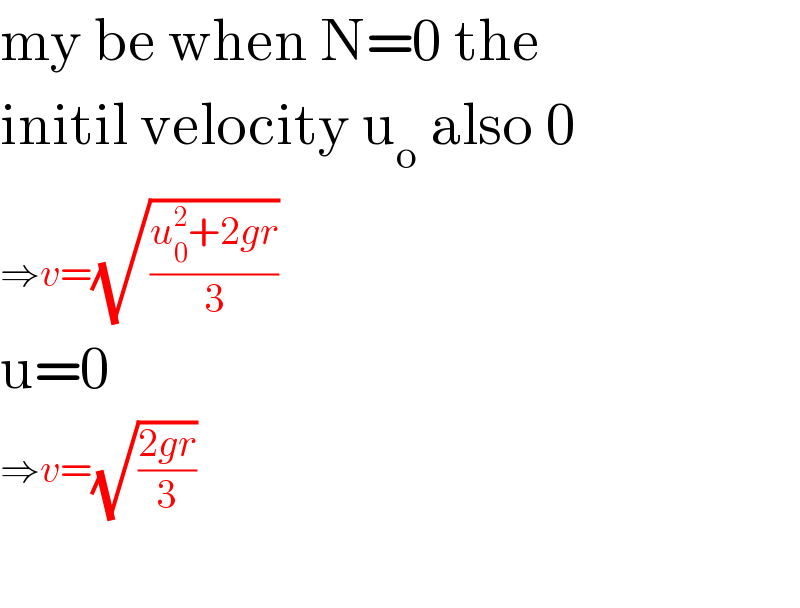
Question and Answers Forum
Question Number 96817 by peter frank last updated on 05/Jun/20

Commented by mr W last updated on 06/Jun/20

Commented by peter frank last updated on 07/Jun/20

Answered by mr W last updated on 06/Jun/20

Commented by mr W last updated on 06/Jun/20
![(1/2)mv^2 =(1/2)mu_0 ^2 +mgr(1−cos α) ⇒v^2 =u_0 ^2 +2gr(1−cos α) mg cos α−N=((mv^2 )/r) ⇒N=m(g cos α−(v^2 /r))=m[g cos α−(u_0 ^2 /r)−2g(1−cos α)] ⇒N=m[(3 cos α−2)g−(u_0 ^2 /r)] when N=0, i.e. contact looses: (3 cos α−2)g−(u_0 ^2 /r)=0 ⇒cos α=(1/3)(2+(u_0 ^2 /(rg))) v^2 =u_0 ^2 +2gr(1−(2/3)−(u_0 ^2 /(3rg))) v^2 =u_0 ^2 +(2/3)(gr−u_0 ^2 ) v^2 =((u_0 ^2 +2gr)/3) ⇒v=(√((u_0 ^2 +2gr)/3))](Q97146.png)
Commented by peter frank last updated on 07/Jun/20

Commented by peter frank last updated on 07/Jun/20

